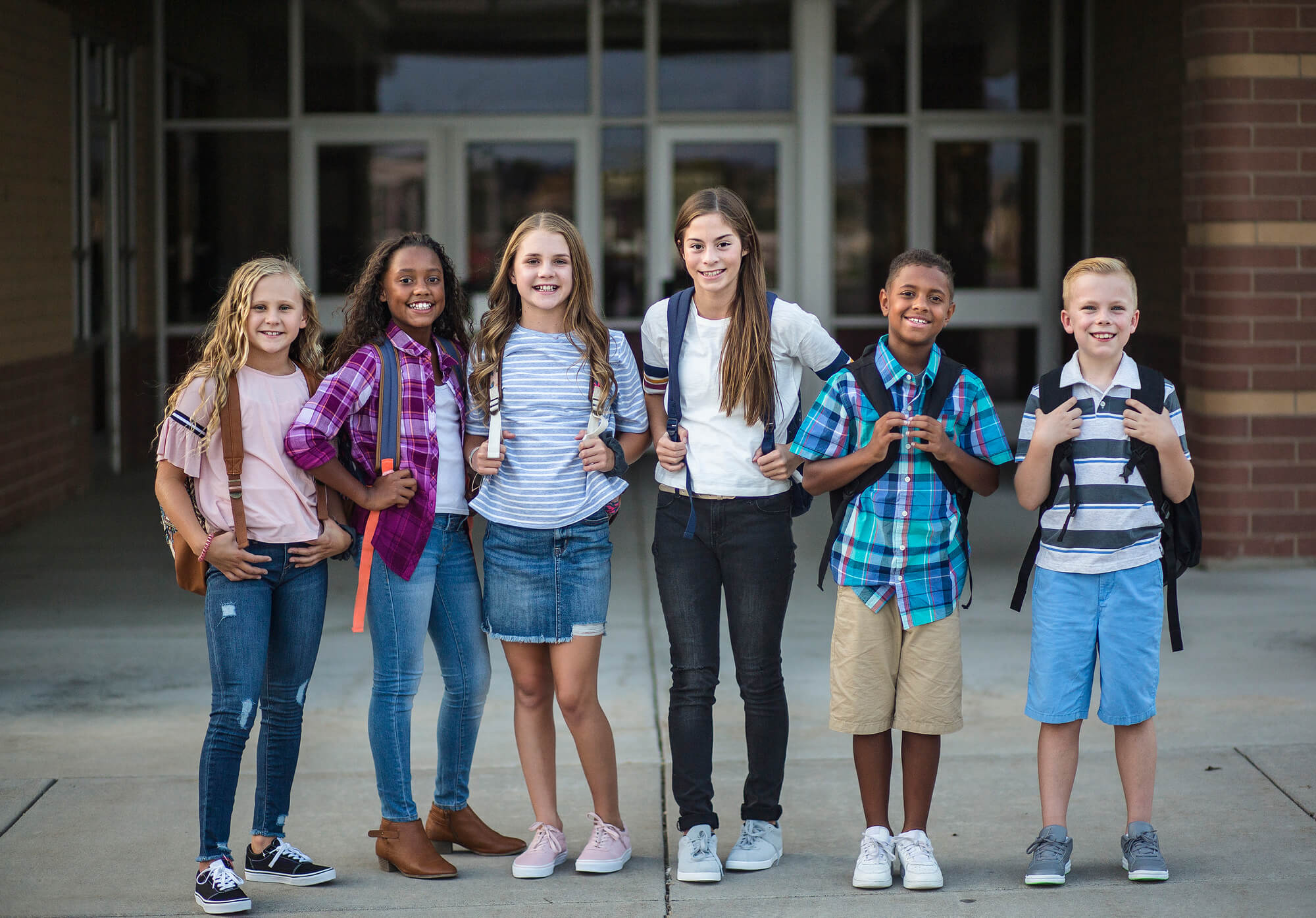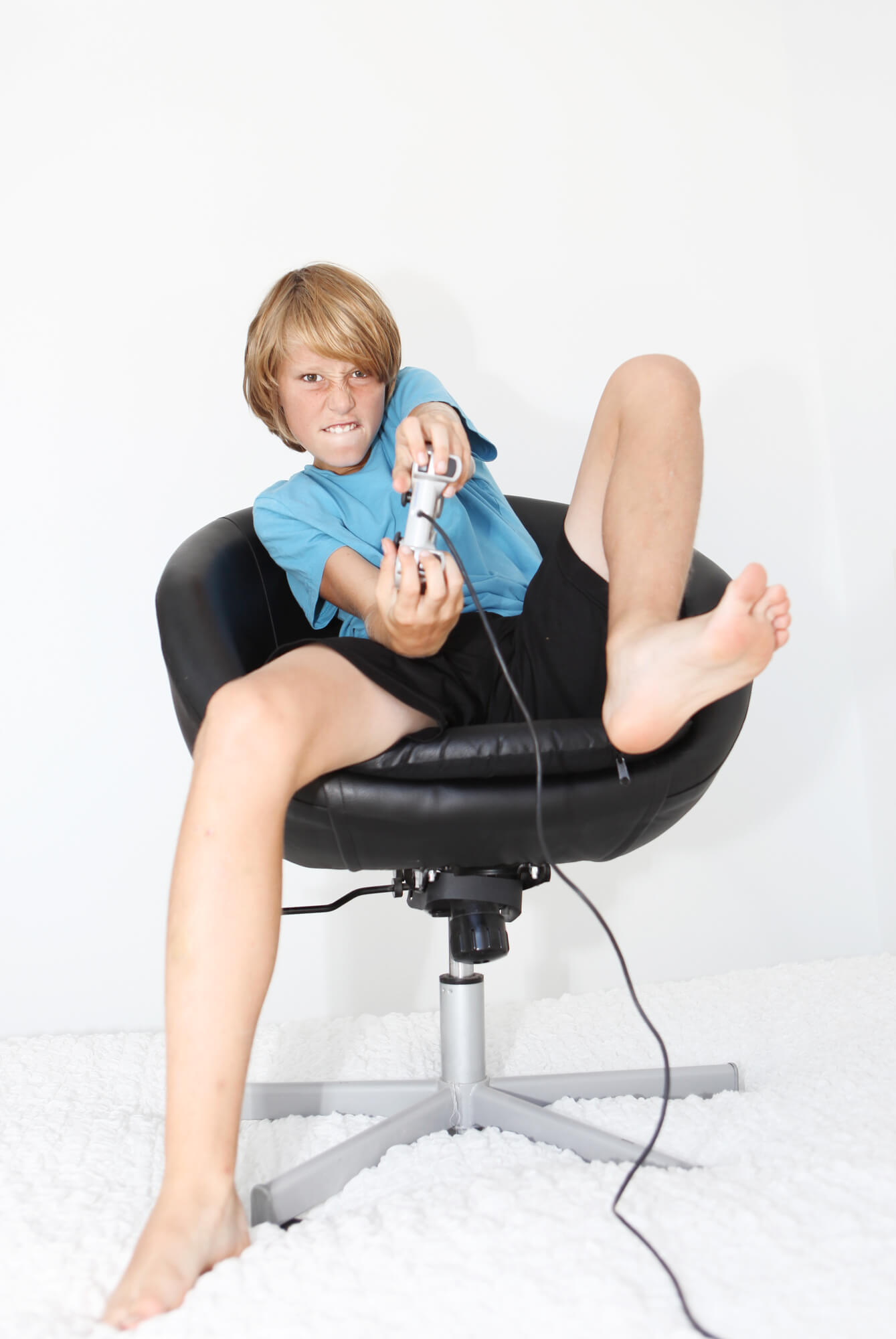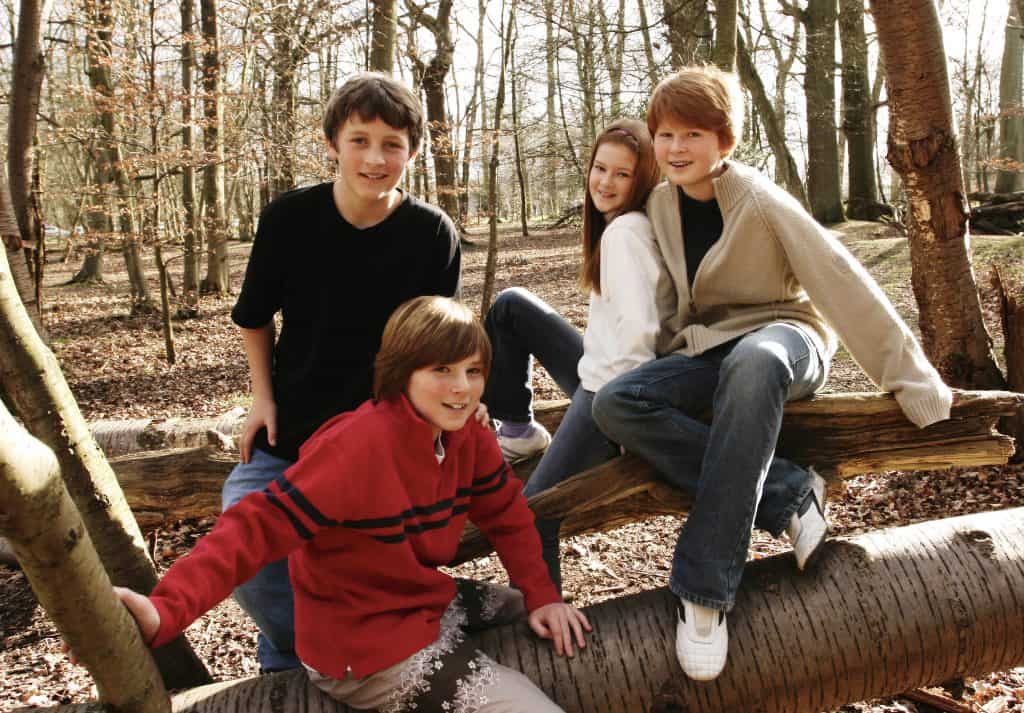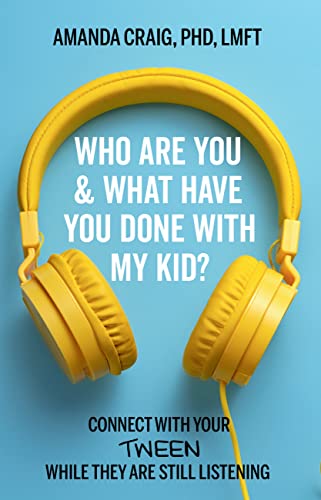Sneak peek: Parenting tweens can involve a lot of ups and downs as well as big emotions. Be prepared for those tween and teen years by understanding what’s going on inside your child’s brain.
As soon as my oldest son approached the tween years, I began frantically reading everything I could about teen brain development, behavior changes and what to expect from this new phase. Nothing completely prepares you for these years, however. He’s now 13 and I am beginning to see some of the telltale signs of teen brain changes and behavior. Wow, it can be a doozy!
Hang on tight, parents. I have a wonderful resource for you. Today’s guest post is by Dr. Amanda Craig, who happens to be an expert on parenting tweens.
Amanda Craig, Ph.D. is a Licensed Marriage and Family Therapist (LMFT) based in Darien, Connecticut and New York City. A native of Richfield, Minnesota, Dr. Craig has been in practice for more than 20 years. She has worked in a variety of settings including University of Minnesota research departments, juvenile correctional facilities, high school special education, Fortune 500 companies, substance abuse programs, Mercy and Iona College classrooms. Currently, she specializes in treating relationships and works with couples and families in private practice. She has a book just released entitled: Who Are You and What Have You Done With My Kid: Connect With Your Tween While They Are Still Listening
Dr. Craig lives in Darien, CT with her husband, six-year-old daughter, 13-year-old son, 10 chickens, one dog, one cat and two fish.
I’m thrilled to have Dr. Craig answering some of our most pressing questions about parenting tweens.

What is Going On With My Tween/Teen’s Brain and Behavior?
What are some of the brain changes that happen as kids get into the tween years?
Tweens are experiencing huge changes in their brain. It’s like spring sprouting in their brain, all these new vines of neural pathways, full of new thoughts and feelings that impact the way they act. Noteworthy: because of the neural pathway growth, this is when predisposed mental illness can come to the surface, which is why you may see more anxiety or depressive symptoms in the tween years. In addition, we also know that the prefrontal cortex, which is involved in reasoning, critical thinking, and decision making, is small, and the limbic system, where the brain holds emotions and memory, is larger.
In the teen years, the brain will prune away neural pathways that they aren’t using. That allows for the brain to be more efficient and quickly access ideas and behaviors we use regularly. Which makes the tween years the perfect time to build good habits.
How do these brain changes influence their behavior?
If you are parenting tweens, you probably know: They are nine-to-twelve-year-olds, conundrums. They morph before our eyes: one minute, we see the adult in them starting to form—they tidy up their room, they are making more complex social and emotional connections, and are able to have more intelligent conversations. The next, whiney and complaining but also laughing at silly jokes (esp. if they are about poop), cuddling, and wanting to be around us. And then they are lying, saying offensive things, and just plain not fun to be around. They graduate from playdates we organize to the more independent “just hanging.” It’s the whiplash start of the push-and-pull relationship with us that will last through their teens.
Tweens look to us to help them feel secure and remind them how to make sense of the world around them. That’s why parenting tweens means they will still hold our hand (comfort), ask us what we think (reassurance), but then also reject our opinion and make us wait in the car far away from their friends and classmates (big feelings). They will wear different clothes, want a new hairstyle, and change their word choices as they hear from their friends or on TikTok.
As confusing as this can be for us as parents, there are perfectly logical, science-based reasons for all this crazy and we can use them to shape our tweens’ brains, their habits, and our relationship with them in the way we parent.
Truths about tween development
Tween brains are changing
When they honed in on the pre-adolescent-to-adolescent (aka tween!) brain, scientists were astounded to find massive brain growth in the neural circuitry. It is literally growing like a vine, an explosion of neural connections like new leaves …and the growth is wild, producing a labyrinth of thoughts and feelings they’ve never had before.
Teens experience emotions they do not recognize
While the vine of neuronal connections is twisting through our teens’ brains, the way they experience and express emotions changes drastically. They feel things brand new to them, and they can be very powerful. Yet tweens don’t yet have the experience or any of the maturity needed to recognize what they’re feeling, so they cannot put words to it just yet. They don’t understand why they feel so emotional. Simultaneously, they have very limited ability to control their emotions, which can put them in a kind of I’m-the-only-one-going-through-this space.
Their feelings are deeper or stronger and don’t always pass as quickly. And because it is such a new experience, they have no idea how to express or regulate them. So, one minute they can be that sweet little kid you have always known, and the next minute, a wildly inappropriate outburst of offensive behavior (likely having a thought and feeling). Or, they can come up with the most important thought-provoking idea that impresses us and then switch to calling us out on behavior we did that they did not like (because they had another feeling).
Tweens are socially awkward
Is there anyone who longs to repeat middle school? For most of us, it was not our finest hour of feeling confident, happy, and well-adjusted. And it makes sense: with all the brain changes, the tween years are often loaded with angst, embarrassment, and insecurity. It is the lowest point of self-esteem and the peak of bullying and mean girls. Tweens are evaluating their worth and comparing themselves to others and how they measure up while also assuming everyone is looking at them and sizing them up. What’s more, they feel like people can see all of their fears and concerns, which makes them…. awkward. Think school dance where the boys are on one side and the girls are on the other!
Amidst all of the above, tweens do not know how to express themselves
Tweens just do not have the wisdom to make good decisions; they can’t use previous experiences and they don’t realize how decisions will impact the long term. Without these data points (wisdom) they are starting at the beginning of data collection or life skills. And the process is arduous. Until they have some experience, they just don’t know how to understand feelings, express their needs, pick an outfit that THEY like, or make a choice based on their ideas. And because the prefrontal cortex is so small, tweens are not yet equipped with the critical thinking ability needed to stand up to bullies, say no to bad choices, and think through their options.
The good news is parents still have a seat at the table with tweens. A big part of parenting tweens is helping them think through concepts and assess good from bad, etc. Tweens will take it in because it feels like reassurance and validation. By the teen years, they mostly look for validation and reassurance from their peers.
Related reading: When Your Are Unsure What to Say to Your Teen (or Tween), These Books Can Help
Common Myths About Tweens and Teens
What do you see as the most common myth about tweens and their behavior?
Most people seem to think you are either a kid or a teenager. You’re in elementary, middle or high school. We think 12-18 years old are the teen years. But when we break out this little group 9-12 years old – it’s not middle school but a bit before that—we see the brain changes before puberty. It’s a time when we parents still have a seat at the table. In a few short years, friendships and peer relationships will really be sitting in our seat. If we connect with our tweens, we build a trusting foundation for the stormy years of teens to come. They will trust us, they will know we have their back, and then will feel safe sharing their ups and downs because they know their voice matters.

Positive Parenting Strategies for the Teenage Years (tweens too!)
Do parents need to change or adapt their parenting strategies as their kids get into the tween years?
When the tween years approach, our kids are more sophisticated in their understanding of the world. They go from kid-like thoughts about building Legos and creating storylines with dolls to having opinions, ideas, and preferences about the real world. To that end, we want them to practice sharing their thoughts: exercise that muscle of the brain that thinks. Parenting tweens means wanting to hear what they think out loud and then letting them judge if it is a good idea or something they want to modify. Young children are not able to do this yet. Giving tweens space to think and not giving them the answer is invaluable. Let me repeat, giving tweens space to think and not giving them the answer is invaluable.
What are some ways parents can keep their emotional connection strong with their kids during these tween years?
I talk about emotional connection, which is essential for bonding with our kids, tweens, teens, and even in our partnerships. Which of the four pillars we use in a given situation and how we use that pillar, is unique to each relationship and developmental stage.
At its core, emotional connection is about love, the verb or action that takes place between two people. We are hard-wired to love and be loved. Our entire body is involved in the action of love. When we love or feel loved by someone, we feel it throughout our body- our heartbeat, breathing patterns, energy level, digestion, and restedness… And when we feel distant from someone really important to us, we feel disconnected—sad, thoughts race, we feel an emptiness in our body, our digestion changes, we emotionally eat\or don’t, we can sweat, and our heart hurts …. Which is why we call it broken-hearted, because our heart actually aches.
You see, an interaction happens between two people, our brain takes it in and sends messages through our entire body via the nervous system. The messages sent are either calming, comforting, safe, and secure or that we are in danger. Think big picture with me—it’s not about the rules of screens parents set (and enforce) for tweens; it’s bigger and deeper than that. It’s about how the interaction feels between us. A kid won’t like the limitations of screens, no matter how we parent them. However, there are ways for the screen limits to be received as caring and other ways it will be perceived as punitive and unjust. So, how do we emotionally connect?

The Four Pillars of Emotional Connection with Tweens
1. I see you.
A parent really listens to what their tween is saying and imagines their perspective. A key part of parenting tweens is the parent putting their perspective aside to really hear their child. Regardless of what I think of screen time, what does my tween think? What do they get out of screen time? What do they like best on screens? Etc. It’s like creating a painting, and you want to know the colors, hues, and textures they are using to explain their reality. It isn’t what we think about them or their story or even how true we think their story is; it is really seeing them for who they say they are. This leaves our tweens feeling like their voice is heard and what they think matters. We see this impact on how willing they are to raise their hand in class and participate in new activities. When they feel like they matter, they are more apt to take healthy risks and feel seen by others.
2. I want to know you.
If to see them is to see their perspective, to know them is to look deeper at their emotions and understand how they feel about their day-to-day life. It is the difference between “how your day” and “how did you experience your day.” This is where we learn about their emotional awareness, how they express emotions, and how they regulate their emotions. We talk with them about feelings, give them space to brainstorm what to call their emotions, how they express and regulate their emotions and moods, and model for them by how we cope with stress, emotions, and relationships. In parenting tweens, when we empathize and give them space to think through emotions and coping, we provide an opportunity for them to develop confidence and empathy for others.
3. I am here for you
We want our tweens to know that in uncertain times of insecurity or when they “fail,” we will have their back. We will support them through their struggles. But also, we will be there to play, have rituals that we do together, make fun memories, and have inside jokes that only we know. And because we want tweens to feel community, we will expose them to other people and cultures that will be an extended support system as they grow. We want them to be able to walk into rooms with people not like them and be inclusive, know how to invite others to the table, and know that people different from them bring unique, valuable qualities and their voices should be heard. This is community. This is where humanity is at its best.
4. I will keep you safe.
As important as it is to start by showing our tweens they have a voice in our home, part of parenting tweens also means being willing to set boundaries. When tweens have boundaries, they learn what guilt or regret feels like, they practice delayed gratification and they see what it feels like to see something through, to do hard things, and come out the other side. This is how resiliency is built. Natural consequences are a parent’s best friend. Sometimes the world will be their lesson that helps us parent. It can be a really important teaching moment.

Is Conflict with Tweens/Teens Inevitable?
Is parent-child conflict inevitable during the tween/teen years?
When tweens and teens pull away and become more independent, experience trial and error, and make mistakes or/and bad choices we will likely see it coming, and conflict will arise as we try to stop them. We want to keep them from feeling that pain, yet they are going to go ahead and make the mistake. It’s hard not to fall into this dance of protection versus growing independence.
We can avoid some of this conflict by allowing natural consequences to occur. To experience life is a better learning opportunity than to be given the answer. When given the answer, tweens do not practice thinking through an idea nor do they feel what it is like to experience failure. Fast forward to the teen years and college years, societally, we are seeing kids having a difficult time making decisions in college. They are experiencing intense anxiety or fear of making the wrong decision or are paralyzed to think through options and in turn, we are seeing an influx of college dropouts. And honestly, we were seeing this trend before COVID, but yes I’m sure COVID has made it worse.
We can also avoid conflict by having boundaries and expectations set up ahead of time, with follow-through at the moment. When parents feel taken advantage of or fear for their tween’s safety, we can make a rule in the moment of anger. Ideally, when parenting tweens, it’s best to set up boundaries ahead of time. This gives an opportunity for parents and tweens to talk through the what and why, and both have an opinion without the intense emotion driving the conversation.
Then, when the tween (who knows the expectation) tries to push the boundary and the parent does follow through as outlined in the previous, well-discussed, calm discussion, the tween isn’t surprised. Sure, the tween might get mad— after all, we all hate to have to stop something fun, but because they know the boundary, they don’t feel it is unjust. I encourage parents to have one or two boundaries and really parent them–discuss in advance and follow through. Honestly, it is easier to really parent two boundaries well than six. And we don’t need to, delegate some of the boundaries to natural consequences!
The other conflict I see is when parents have low patience, are exhausted and overwhelmed with their life, feel alone in their marriage or have a ton of work, financial or other life stress, and are easily triggered by their tweens’ behavior. The solution to this conflict lies in the simple analogy we hear on airplanes: “put your mask on first before assisting others”. Spot on! When we don’t, we are less available mentally, physically, and emotionally.
Parents can avoid some of this by having a really good self-care regimen. Parents deserve to feel alive in their lives. If we parents don’t honor the human we are, the individual adult that is in a life of our own, we will not be able to show up for others in a meaningful way. We want to model self-care for our kids and regulate our nervous system into calmness often. Know your flow of life that makes you feel alive. Be willing to make hard choices like saying “No” to that one more thing you don’t want to do, or take time for yourself to really do something that fills you up, rather than the glass of wine or hours of numbing out on TV or social media.

Best Tips for Parenting Tweens
What is one thing you wish all parents understood about tweens?
The comment I get often from parents is “My kid is doing this or that to me on purpose to push my buttons”. Ummm, no they aren’t. They are WAY too confused and egocentric to think about you that deeply and they have no wisdom to think through the buttons you have that they can push. Kids push our buttons because we have buttons. They have no idea what they are pushing.
When our buttons feel pushed, parents often report an intense feeling that comes quickly, is very strong, and leads to a behavior. Parents will often say the emotion feels stronger than it needs to be for the situation. And the behavior is usually unhealthy to the connection seen through an anger response that blames, punishes, and yells at our tween for example.
What is happening is the protective part of parents is activated and responding as if there is danger. Our tween is not dangerous but we react so fast that we don’t take a moment to realize that. And if we haven’t done our own therapy or healing work, this stuff will drive us away from connection with our tween and in our adult relationships, honestly. If we can understand what is coming up in us that has nothing to do with our kid pushing a button, we will be more available to practice intentional parenting.


Leave a Reply